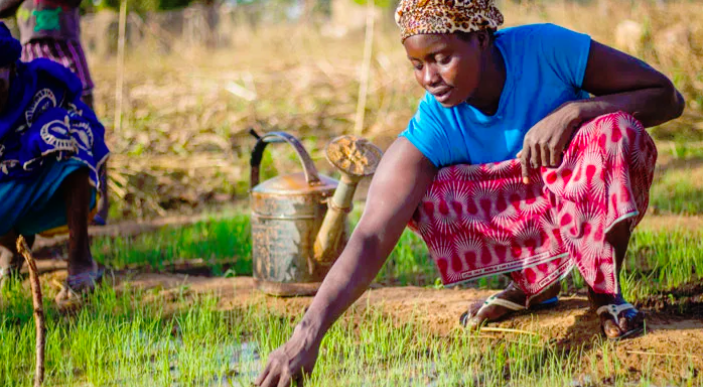The number of households in one of the hottest regions of West Africa who are able to cope with climate extremes increased almost four-fold, as a result of work supported by Self Help Africa.
That’s the conclusion of a report that reviews how families who adopted new farming practices are coping with a climate that is becoming hotter, drier and more unpredictable.
83% of households that adopted of new farming methods, took steps to conserve moisture and nutrients in soil and that introduced new crops and new farming activities had increased their climate resilience, the report into the four and a half year project found. At the start of the project just 24% of families were coping with the climate extremes.
Self Help Africa undertook ‘BRACED’ in collaboration with German development agency Welthungerhilfe and with four local partners, between 2015 and 2019.
The activities carried out, which included rice cultivation, cassava production, market gardening and poultry rearing, together with the promotion of improved seed varieties and of ‘climate smart’ agricultural techniques, also helped to increase the number of households who were producing a year-round supply of food from just 31% up to 56%.
In a region of Burkina Faso that has experienced rising poverty and hunger as a result of global warming, BRACED sought to support 1.3 million people to diversify farm production and change their farming practices so that they could cope better with changing climate.

